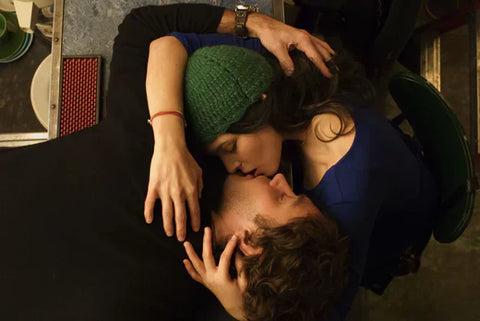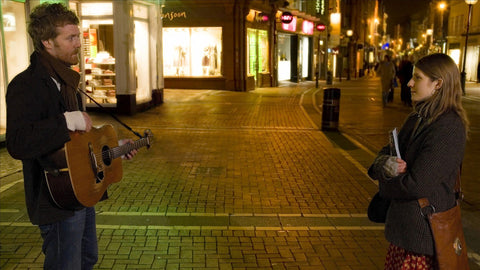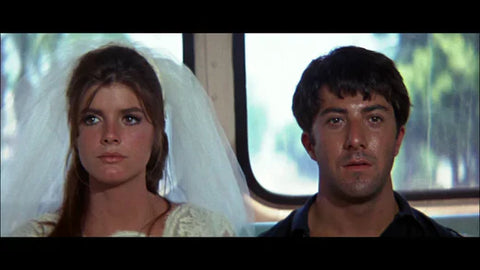
That summer—my “summer” began in April—I watched nearly every film Wong Kar-wai had ever made. Coincidentally, that year’s Hong Kong International Film Festival featured a retrospective called “Jet Tone at 25,” with many screenings of Wong’s films. Seeing his work on the big screen was an entirely different experience from watching them at home.
I bought tickets for Ashes of Time Redux and My Blueberry Nights. In the end, I only made it to the first. The latter I ended up watching at home.
My Blueberry Nights is unmistakably Wong Kar-wai, echoing his previous works in both style and substance. The score includes pieces from In the Mood for Love, and the framing of the heroine gazing out of the café window mirrors Maggie Cheung’s scenes in Ashes of Time. Even the layout of the café counter resembles Faye Wong’s fast-food joint in Chungking Express. As in many of Wong’s films, the male lead is steeped in nostalgia, a collector of objects and memories. Numbers play a subtle role in the narrative, another hallmark of Wong’s storytelling.
However, this film feels more straightforward than his earlier works—at least by his standards. If judged as a Hollywood production, it’s still more subtle than most blockbusters. There’s also a touch of humour, rare in his oeuvre. While the story delves into longing and heartbreak, it’s buoyed by a hopeful, happy ending.
The casting is notable too. Choosing Norah Jones to act rather than sing showcases Wong’s singular vision. Jude Law, with his offbeat charm and brooding air, feels perfectly suited to his role. His delivery of deeply sentimental—bordering on saccharine—lines somehow feels natural, never awkward. Few could pull that off like he does.
This isn’t my favourite of Wong’s films. Not because it isn’t good, but because his other works are simply extraordinary. Within the realm of romantic vignettes, though, My Blueberry Nights comfortably sits in my top ten. It’s the kind of film worth revisiting. If Wong’s body of work were a dessert menu at a café, My Blueberry Nights would be the blueberry pie—perfectly fine, but easy to overlook.
Elizabeth: “So, what’s wrong with the blueberry pie?”
Jeremy: “There’s nothing wrong with the blueberry pie. It’s just... people make other choices. You can’t blame the blueberry pie. It’s just... no one wants it.”
Elizabeth: “Wait! I want a piece.”
One day, he messaged me after seeing I’d listed my Damien Rice concert ticket for resale. (Yes, I’d been waiting ages for it but couldn’t make it in the end.) I told him, regretfully, that the ticket was already sold. He said, “I feel like I’ve been missing everything lately. I even bought a ticket for My Blueberry Nights but couldn’t go.”
It turned out we’d both skipped the same screening. “Isn’t that a strange coincidence?” he asked. (Though, it seems, the blueberry pie was overlooked once again.)
We missed it together, but at least we didn’t miss each other.
Here’s a song for this moment: Cody Chesnutt’s 5 on a Joyride. It’s one he once shared with me. Before that, I’d never heard of Chesnutt. Afterward, I never explored his other songs. But this one is special. It’s joyful yet achingly tender, a paradox wrapped in melody.
"Laughter you can bring
Say the first thing on your mind and feel so satisfied
Come along for the ride, on a joyride."


